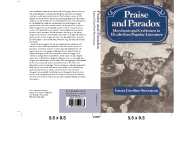Book contents
- Frontmatter
- Contents
- Acknowledgements
- Prefatory note
- Introduction: praise and paradox
- PART I ELIZABETHAN POPULAR LITERATURE
- PART II THE BUSINESSMAN IN ARMOUR
- PART III THE GENTLE CRAFTSMAN
- 8 Clown and rebel: the craftsman as one of ‘the fourth sort of people’
- 9 The gentle craftsman in Arcadia
- APPENDICES
- Index
- Past and Present Publications
8 - Clown and rebel: the craftsman as one of ‘the fourth sort of people’
Published online by Cambridge University Press: 29 October 2009
- Frontmatter
- Contents
- Acknowledgements
- Prefatory note
- Introduction: praise and paradox
- PART I ELIZABETHAN POPULAR LITERATURE
- PART II THE BUSINESSMAN IN ARMOUR
- PART III THE GENTLE CRAFTSMAN
- 8 Clown and rebel: the craftsman as one of ‘the fourth sort of people’
- 9 The gentle craftsman in Arcadia
- APPENDICES
- Index
- Past and Present Publications
Summary
The popular authors who celebrated the achievements of merchants also wrote about lesser men of trade – craftsmen, journeymen, and apprentices. This is not surprising; there were many more craftsmen, journeymen and apprentices in Elizabethan England than there were merchants and rich clothiers, and the men who migrated to London and provincial towns in search of work, whatever their aspirations, were of this low commercial status (if in fact they were not merely unskilled rural labourers). The popular authors could attract an audience of these men by focussing their dreams of success – telling them how great merchants had once been poor men like themselves. Still, few apprentices and craftsmen could actually hope to rise to such economic heights, so the authors wisely balanced their stories of poor boys made good with others that asserted the innate worthiness of lesser men of trade who became neither rich nor famous.
When they approached craftsmen, the authors encountered a sociological problem rather different from the one they had faced in their stories about merchants. Merchants, as principal citizens, had a social position ‘next place to gentry’, formed one of the four major social groups of the hierarchy, and had a tradition of leadership which, along with the apocryphal tales of their wealth, could be used readily by authors who wished to replace the negative stereotype of the merchant as usurer. Craftsmen, however, had no such tradition; they were not the men by whom history was made.
- Type
- Chapter
- Information
- Praise and ParadoxMerchants and Craftsmen in Elizabethan Popular Literature, pp. 161 - 179Publisher: Cambridge University PressPrint publication year: 1984

